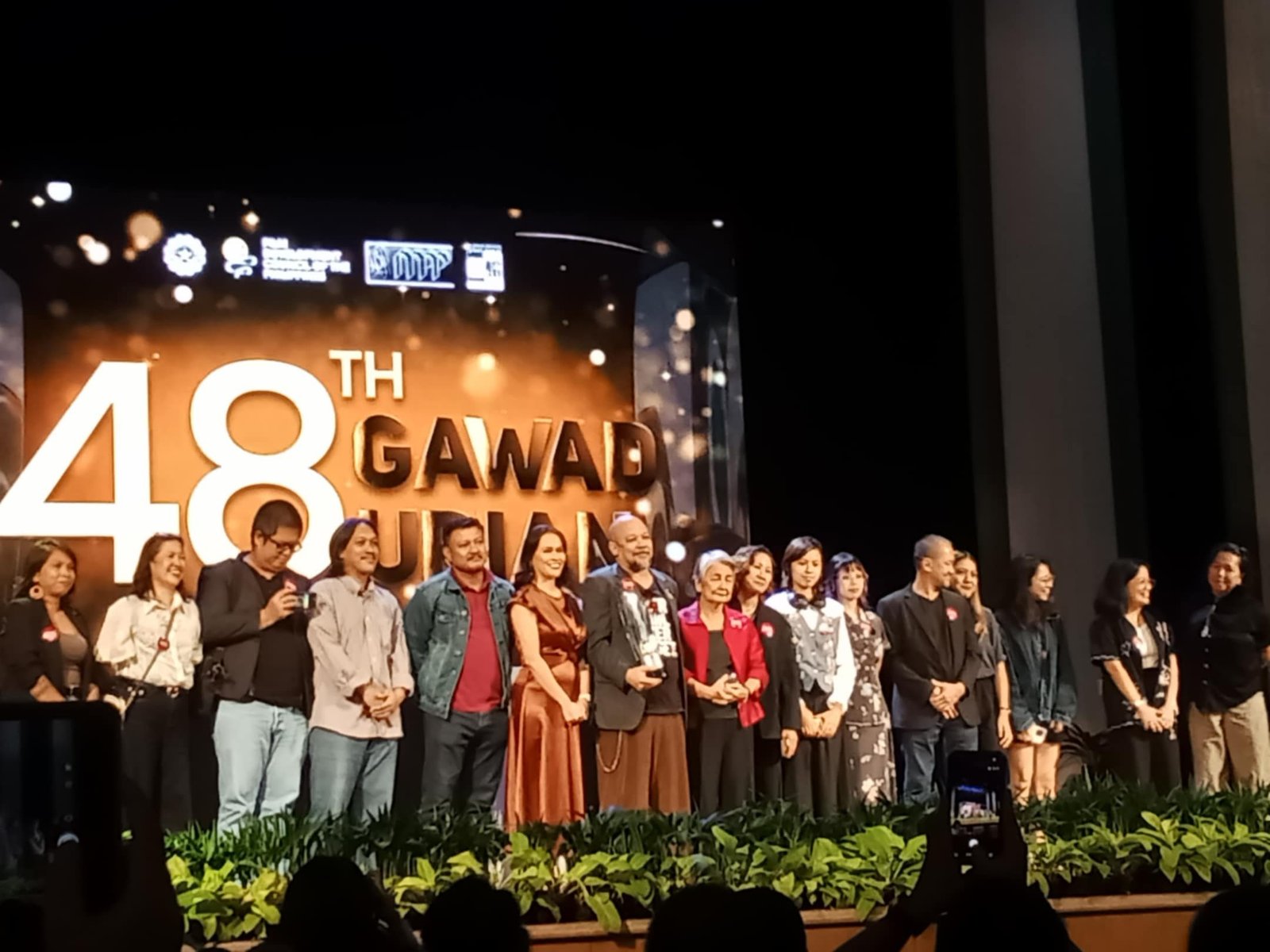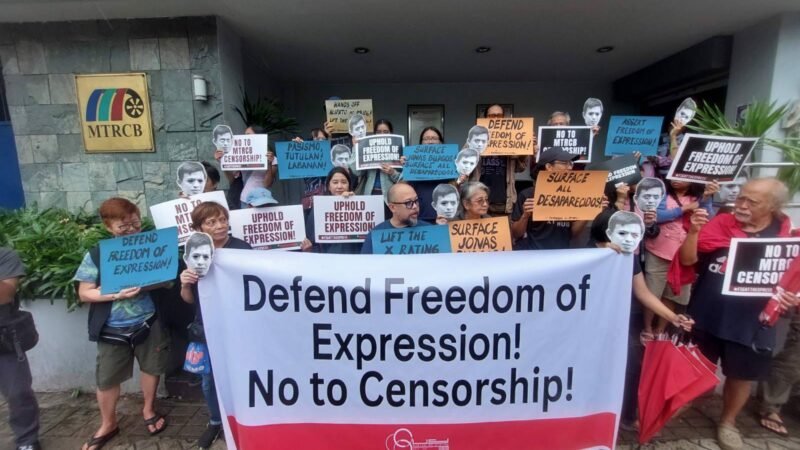
Artists and activists protested the X rating given by a government body to a human rights documentary. Photo from Facebook post of Altermidya. Used with permission.
Filipino artists and free speech advocates said the passage of a Senate bill expanding the regulatory powers of the Movie and Television Review and Classification Board (MTRCB) could stifle freedom of expression and undermine the country’s movie and TV industry.
The MTRCB classifies TV shows and movies to guide viewers, although several artists and scholars have called for its abolition since it can also prevent the distribution and release of content deemed offensive to public morals and a threat to national security. Under the Senate bill, the MTRCB mandate will expand to include content streamed on digital platforms.
The bill’s author said the reform seeks “to address issues of obscenity, immorality, and senseless violence in the digital platforms.” He noted that “while some productions from Asian countries may align with Filipino culture, Western-influenced content often requires careful consideration, especially when it comes to protecting young audiences.”
Another senator added that “art in all its glory, should always bend in accordance with set rules and guidelines so as not to offend, and tarnish the reputation and image” of individuals.
However, several stakeholders have publicly opposed the bill. A group of screenwriters said the bill “threatens to turn screens into sanitized echo chambers.” The League of Filipino Actors has asked for an “inclusive dialogue” to address objectionable provisions in the bill.
The Philippine Independent Producers Guild said the standard for justifying censorship is problematic.
We express deep concern that vague and expansive censorship criteria, especially those related to national reputation and political stability, could be weaponized against filmmakers tackling socially relevant or critical themes. This poses a direct threat to freedom of expression, cultural discourse, and the democratic value of dissent.
It urged legislators to focus on what the art industry is demanding.
Instead of tightening restrictions, the government should focus on empowering the industry by offering fiscal incentives, tax relief, co-production support, and investment in talent development and infrastructure. What the sector needs is not more oversight but a policy environment that nurtures risk-taking, diverse storytelling, and artistic freedom.
The University of the Philippines Film Institute reiterated its call for the abolition of the MTRCB since it “epitomizes institutional stagnation incompatible with the dynamic evolution of contemporary cultural expression.” It also pointed out that the Senate proposal belittles the capacity of viewers to discern what is right and wrong. “It infantilizes citizens, treats them as incapable of making informed decisions with their own resources, and further justifies unwarranted government control.”
The Directors’ Guild of the Philippines (DGPI) insisted that digital platforms should not be regulated by the MTRCB. It also accused authorities of seeking to institutionalize censorship in the country.
The DGPI stands against expansion of MTRCB’s jurisdiction into the online streaming space because it is largely a private viewing experience, and does not count as public exhibition.
While the bill attempts to frame the MTRCB as protector of children, its provisions unmask its real mission: the unbridled control of Filipino hearts and minds through censorship of material not only for minors but more harmfully for adults, whose freedoms are protected by our Constitution.
Filmmaker JL Burgos, whose documentary on his disappeared activist brother was initially given an X rating by the MTRCB, warned against the expansion of the censorship powers of the regulating body.
These clauses are dangerously vague and subjective, and opens the door to arbitrary censorship. Any content that challenges the status quo, critiques government policy, or depicts social issues deemed ‘immoral’ by conservative standards could be banned outright.
The MTRCB welcomed the passage of the Senate bill as it assured the public that it is committed to promoting artistic freedom and public safety.
There is no prior constraint or a mandatory review before content is shown. Rather, the measure seeks to ensure that the State is not left helpless in addressing valid concerns and issues such as harmful online contents, particularly materials involving child abuse, exploitation, or voyeurism.
The Senate bill has no counterpart measure in the House of Representatives, but it is expected to be refiled when Congress resumes its session next month. This gives enough time for the proponents and critics of the bill to persuade legislators of both Houses and the public to support their stand on this matter.











